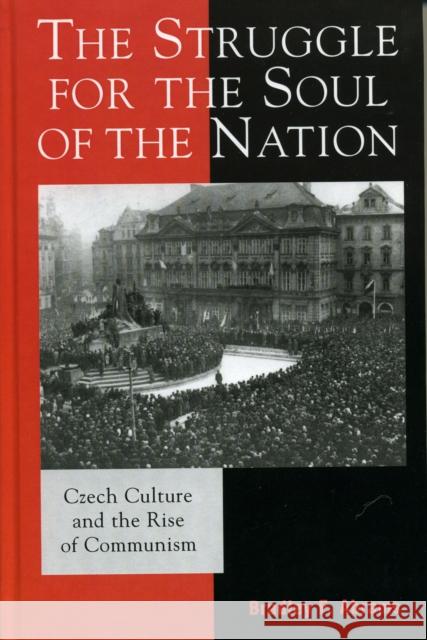The Struggle for the Soul of the Nation: Czech Culture and the Rise of Communism » książka
The Struggle for the Soul of the Nation: Czech Culture and the Rise of Communism
ISBN-13: 9780742530232 / Angielski / Twarda / 2004 / 372 str.
The Struggle for the Soul of the Nation: Czech Culture and the Rise of Communism
ISBN-13: 9780742530232 / Angielski / Twarda / 2004 / 372 str.
(netto: 589,98 VAT: 5%)
Najniższa cena z 30 dni: 614,41 zł
ok. 30 dni roboczych
Bez gwarancji dostawy przed świętami
Darmowa dostawa!
The material effects of World War II, in combination with Eastern Europe's disappointingly undemocratic interwar history, placed radical social change on the postwar agenda across the region and shaped the debates that took place in immediate postwar Czech society. These debates adopted both a cultural form, in struggles over the meaning of the recent past and the nation's position on the East-West continuum, and a directly political form, in battles over the meaning of socialism. The Struggle for the Soul of the Nation examines the most important and politically resonant fields of historical and cultural debate in Czech society immediately after World War II. Bradley Abrams finds that communist public figures were largely successful in controlling debate over the nation's recent past_the interwar First Republic and the experiences of Munich and World War II_and over its location on the EastDWest continuum. This success preceded and was mirrored in the struggles over the political issue of the times: socialism. The communists engaged their political foes in the democratic socialist and Roman Catholic camps, and, surprisingly, found significant support from a major Protestant church. Abrams's careful reading of major publications re-creates a postwar mood sympathetic to radical social change, questioning the standard view of the communists' rise to power. This book not only contributes to the specific literature on Czech history, but also raises questions about the relationship between war and radical social change, about the communist takeover of the region, and about the role of intellectuals in public life.











